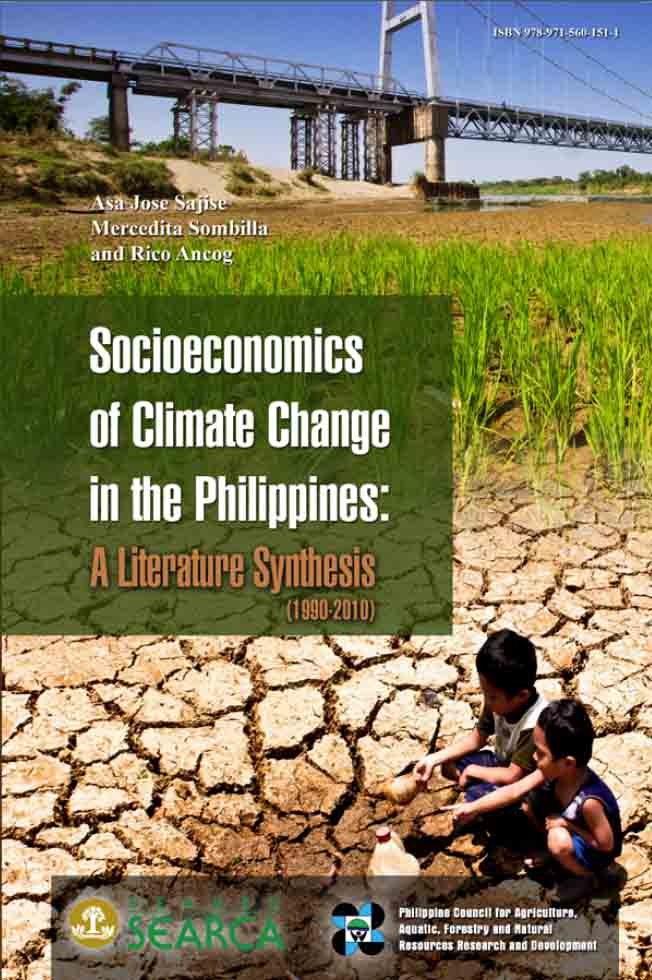Socioeconomics of Climate Change in the Philippines: A Literature Synthesis (1990-2010)
Introduction and Framework of Analysis
According to the Initial Communication of the Philippines, the Philippines is among the first countries to respond to the challenge of the climate change phenomenon. As early as May 8, 1991, the Philippine government had created the Inter-agency Committee on Climate Change (IACCC) by virtue of Administrative Order No. 220. Since then, several initiatives such as action-oriented programs and policies have followed to address climate change. Recently, the Philippine government established the Philippine Climate Change Commission by virtue of the Philippine Climate Change Act of 2009 (Republic Act (RA) 9729), which was signed into law on October 23, 2009. The Commission is tasked, among other things, to formulate and implement plans for the country to better respond to natural disasters. Even at the local government level, proactive Local Government Units (LGUs) like the Province of Albay and the City of Sorsogon have initiated programs and policies to address climate change.
While we have made headway in the science and prediction of events related to climate change, there have been few socio-economic literatures on climate change in the Philippines. We have yet to document more extensively the processes and dynamics of human behavior and choices as affected by climate change. How do people autonomously adapt to climate change?
This review is meant to fill in this gap. It is a comprehensive literature synthesis on climate change and human adaptation from both published and electronic references. The main sources of information are the Regional Review of the Economics of Climate Change by the Asian Development Bank (ADB, 2009) and the unpublished annotated bibliography of socio-economic literature related to climate change undertaken by Briones et al. (2010). The synthesis’ end goal is to identify researchable areas related to the socio-economics of climate change in the Philippines, specifically in the agriculture, forestry, and natural resources (AFNR) sectors.
Knowledge of the socio-economics of climate change and its impacts, mitigation, and adaptation can guide policymakers and program implementers on how to fully prepare the country for climate change. It can also identify research gaps that should be addressed so that stakeholders can make informed decisions and actions to mitigate and adapt to the problems associated with climate change.
The synthesis is guided by the conceptual framework shown in Figure 1. The framework relates the causes and impacts of climate change to the actions that help mitigate and/or adapt to such impacts.
The first section discusses and identifies the major hazards and risks associated with climate change in the Philippines. It also looks at available scientific evidence on the occurrence of climate hazards. The second section looks at the impacts of these hazards/risks on water resources (stress), agricultural productivity, and state of forests, marine, and coastal areas. The last two sections discuss the literature on mitigation and adaptation to climate change.














